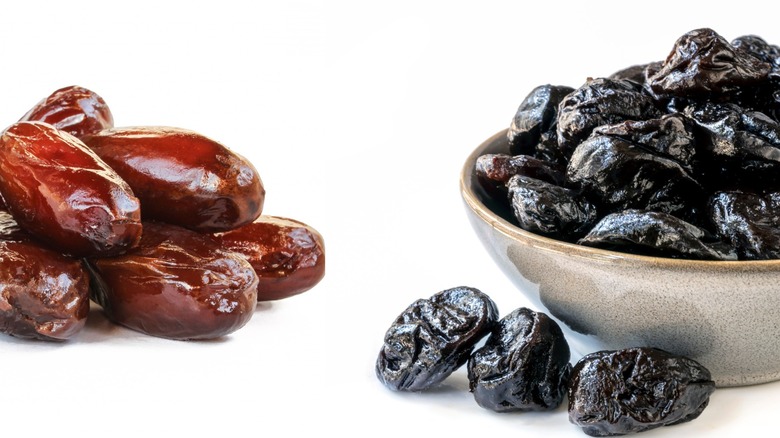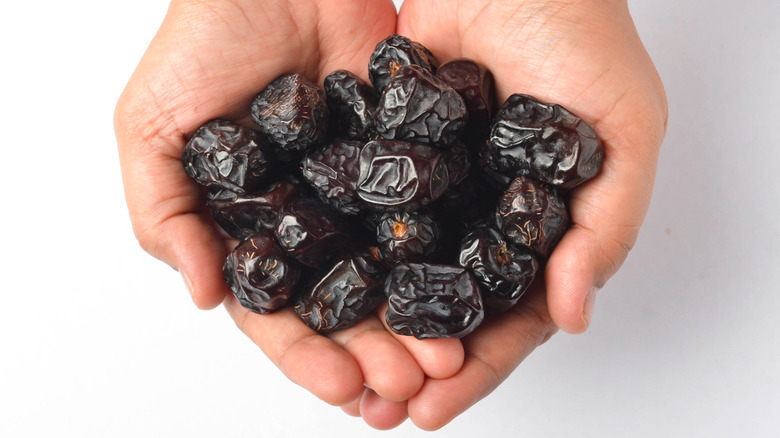
Incorporating both prunes and dates into our diets can be beneficial to our health. Deciding between the two might depend on specific health objectives. Let’s begin by examining the nutritional content of each.
A single prune has approximately 23 calories (via WebMD). On the other hand, a Deglet Noor date contains about 20 calories (via Medical News Today). If you desire a snack with higher fiber content, Medjool dates might be a better choice. However, if you’re aiming for a low-calorie, low-sugar, and low-carbohydrate snack, prunes or Deglet Noor dates could be more suitable.
It’s essential to remember that portion sizes are crucial, especially with dried fruits. Consuming too many dates or prunes can hinder healthy eating goals, as noted by SF Gate. Overindulging in dried fruits might lead to gastrointestinal issues if your digestive system is not accustomed to high-fiber foods.
The vitamins and minerals in prunes and dates

Dates and prunes are packed with numerous vitamins and minerals that offer health benefits beyond just calories, sugar, and fat. Prunes are rich in a mineral called boron, which supports bone health and lowers the risk of osteoporosis. A serving of prunes provides the daily recommended value of boron, as per a study in Critical Reviews in Food Science and Nutrition. Additionally, prunes are abundant in antioxidants, such as neochlorogenic acid and chlorogenic acid, which safeguard against various diseases (via WebMD). They enhance gastrointestinal health and help relieve and prevent constipation due to their soluble and insoluble fiber content, as well as high sorbitol content.
A 2014 study in Alimentary Pharmacology and Therapeutics revealed that consuming prunes for three weeks improved stool frequency and consistency in constipated individuals. Both dates and prunes can lower bad (LDL) cholesterol by inhibiting cholesterol absorption in the bloodstream, thus reducing the risk of heart disease (via WebMD).
The drawbacks of eating prunes and dates

While evaluating the health benefits of certain foods, it’s equally important to consider the drawbacks. Although prunes can promote healthy gastrointestinal functioning, they may also increase the risk of diarrhea and gastrointestinal issues, including bloating and cramping, for some individuals (via WebMD). Additionally, both prunes and dates pose an increased risk of exposure to acrylamide. This chemical forms at high temperatures when sugar interacts with asparagine (an amino acid). Clinical studies have shown that high levels of acrylamide can cause cancer in animals, leading scientists to suspect it may be carcinogenic to humans (via U.S. Food and Drug Administration). Opting for prunes dried at lower temperatures can minimize acrylamide exposure (via WebMD).
Finally, since dates have a higher sugar content than prunes and other fruits, portion control is vital for maintaining a healthy diet. This is particularly important for individuals who need to manage blood sugar conditions like diabetes.




